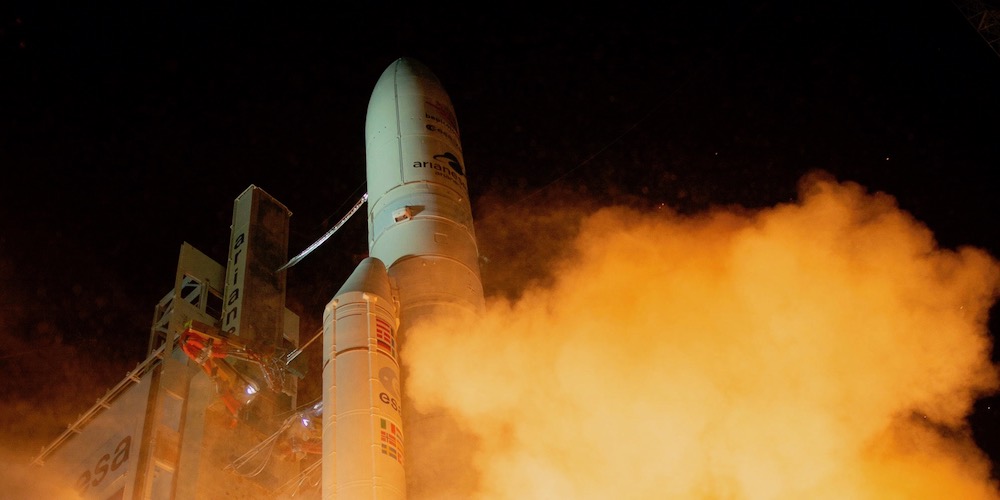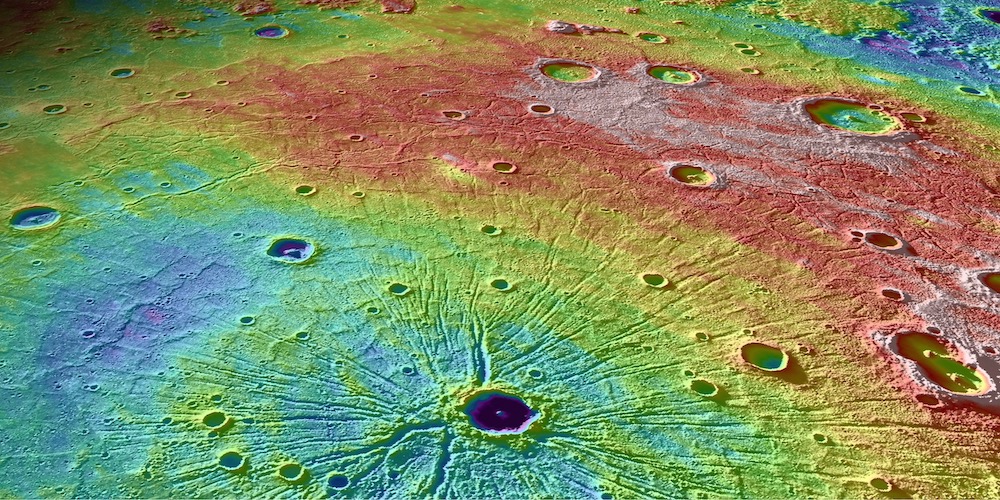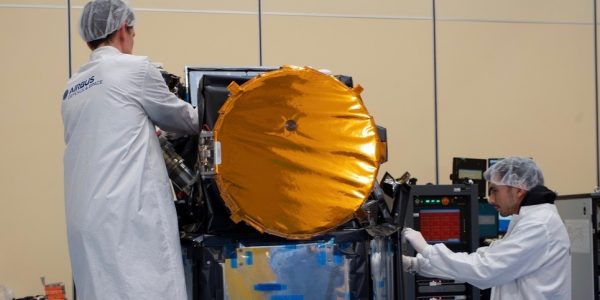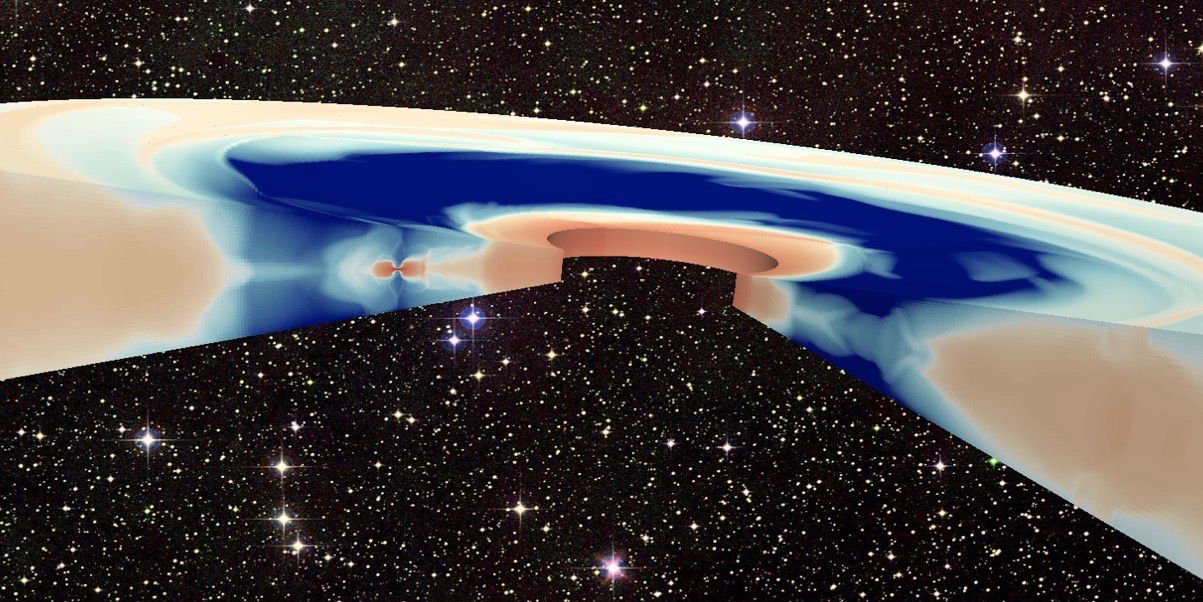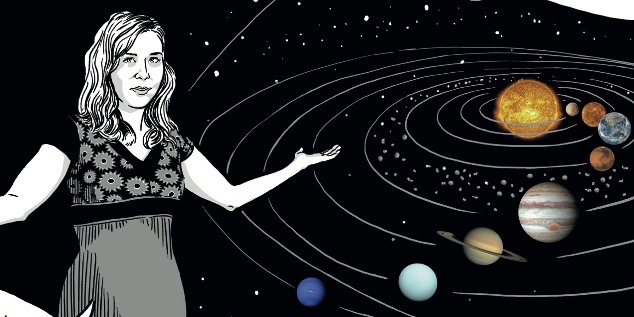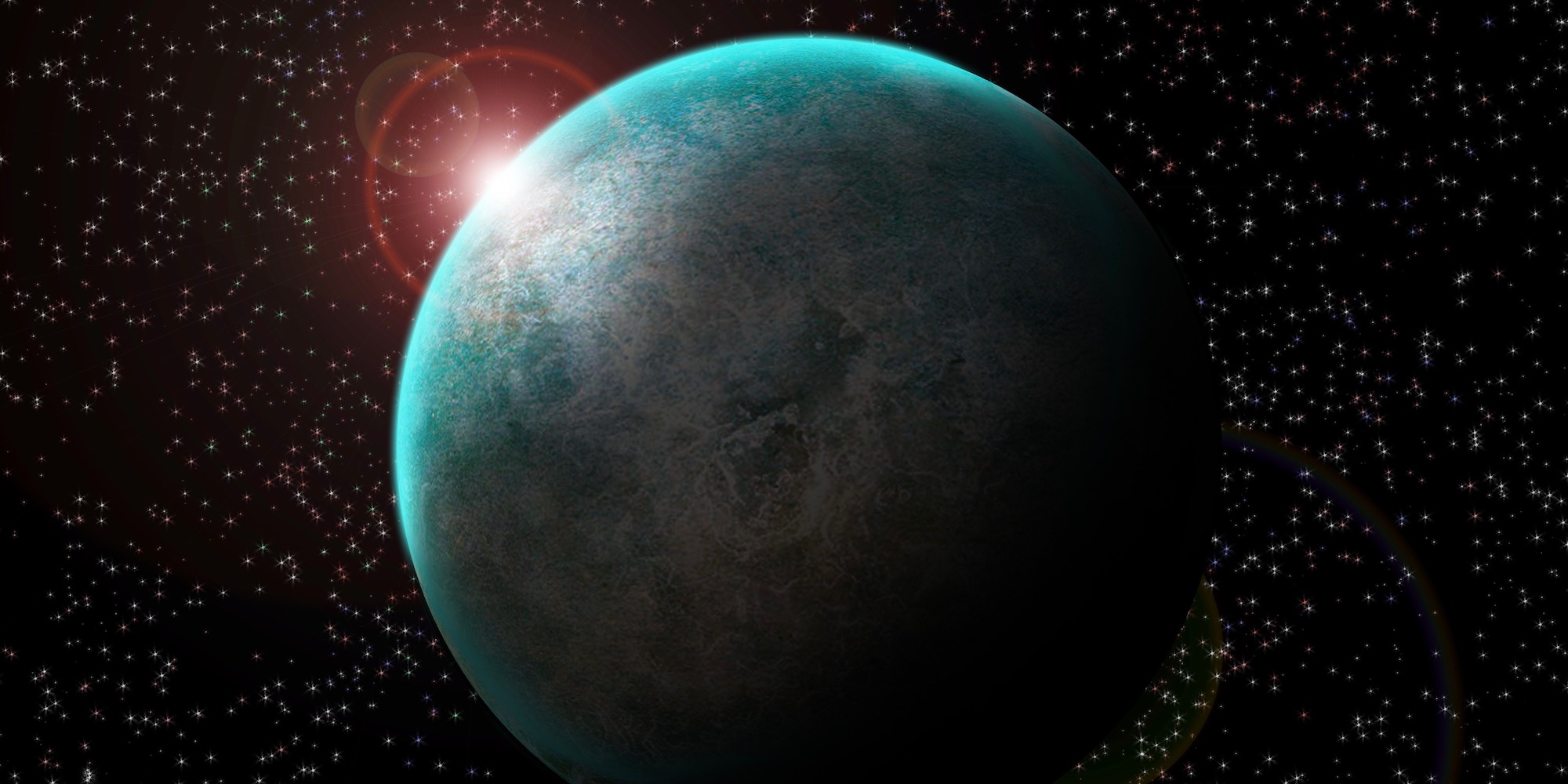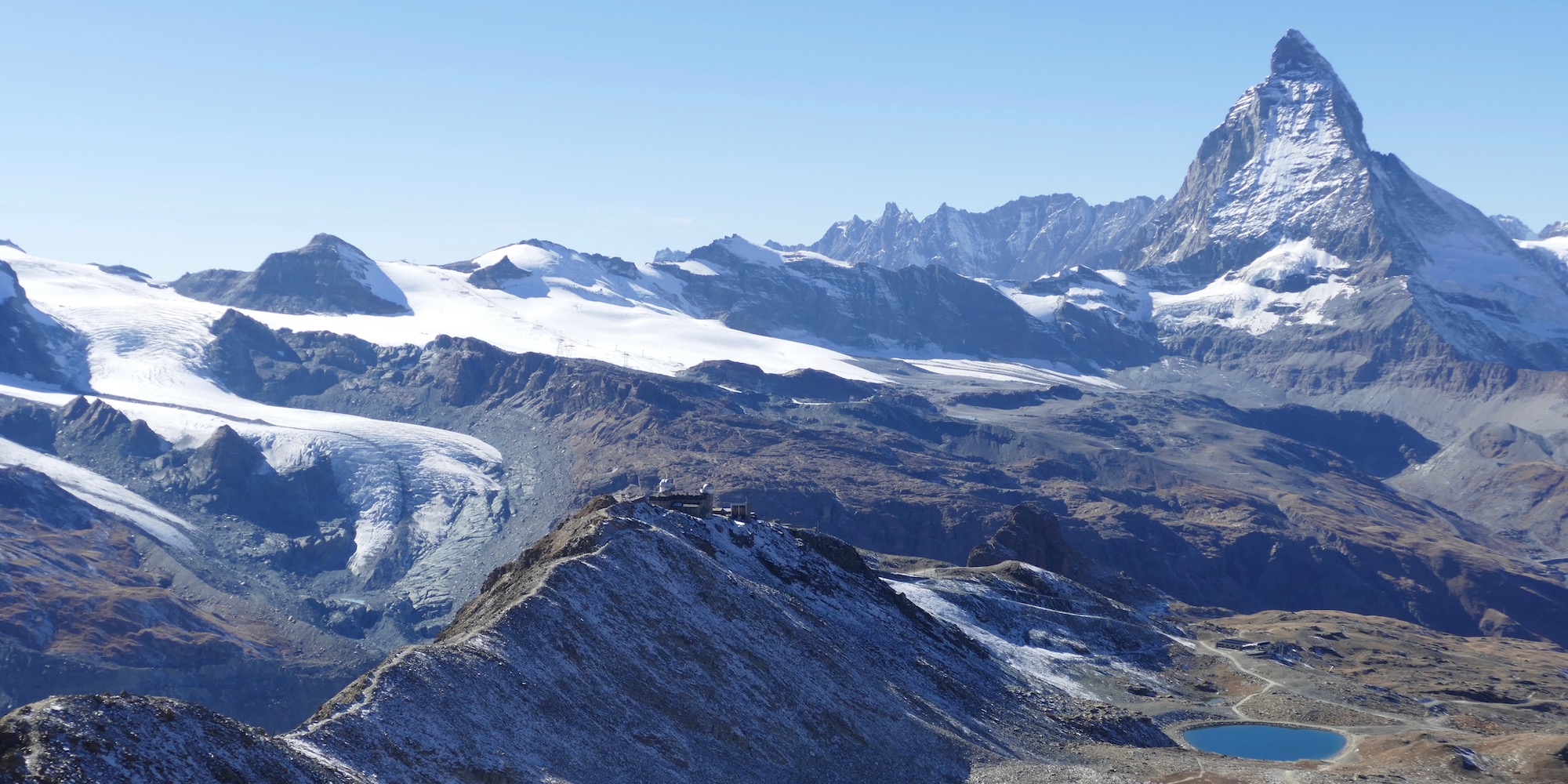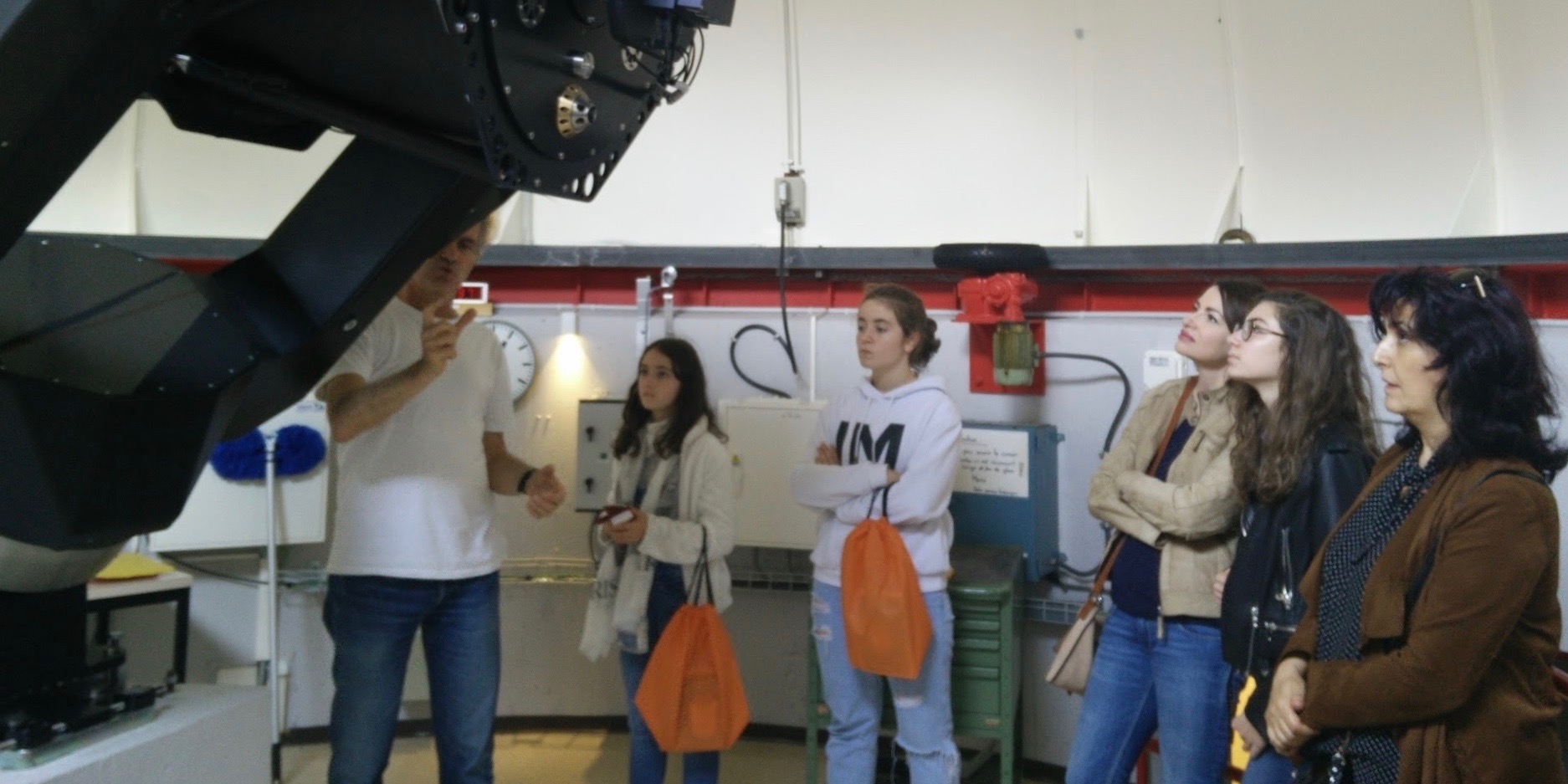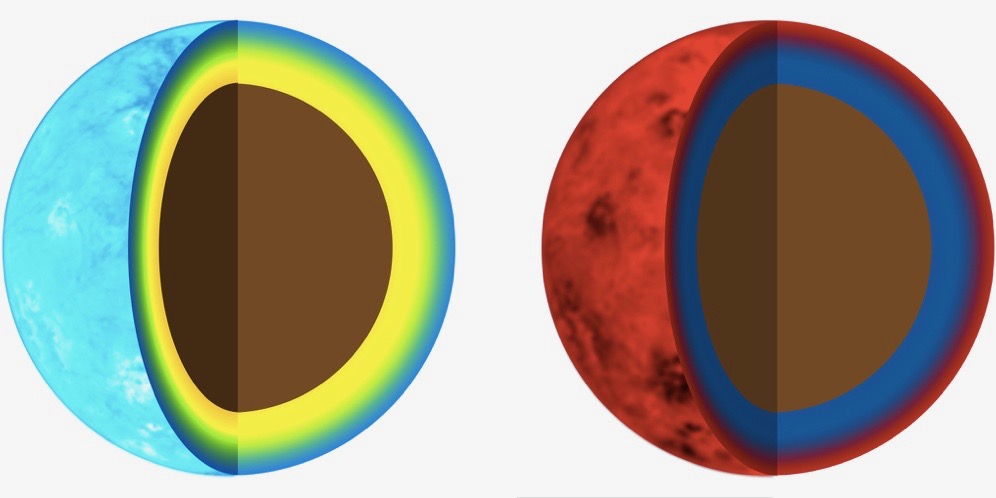News
BELA – The Bern altimeter’s launch to Mercury
BepiColombo blasted off to investigate Mercury. Nicolas Thomas, Co-Principal Investigator of the instrument BELA and Director of the Physics Institute of the University of Bern, experienced the launch first hand. Here are his impressions. By Nicolas Thomas On the way BepiColombo will launch from Kourou in the morning (European time) of October 20 2018. Having […]
Continue ReadingForming Mercury by Giant Impacts
The smallest planet in our Solar System has a large iron core. How come? According to the most popular theory, Mercury lost big parts of its rocky mantle in a collision. Alice Chau and her colleagues at the University of Zürich simulated different scenarios with a super computer. Their result: Forming Mercury by giant impacts […]
Continue ReadingConnected to space
After a long tour through Europe, the CHEOPS satellite is back at Airbus Defence and Space Spain in Madrid. On its journey, it had to pass thermal-vacuum tests at Airbus facilities in Toulouse, mechanical vibration tests at RUAG Space in Zürich, and acoustic noise and electromagnetic compatibility tests at ESA’s technical centre in The Netherlands. […]
Continue ReadingHow the moons of Jupiter were formed
When astrophysicists of the NCCR PlanetS at the University of Zürich analyzed their computer simulations they were amazed: The formation of the moons of Jupiter happened much faster and later than previously believed. The researchers also found out that the satellites we see today are likely not the only moons that formed around the planet, […]
Continue ReadingScientist Judit Szulágyi appears in space comic
Since 28 March 2018, the ETH Museum focusTerra in Zurich has hosted the exhibition “Expedition Solar System – Join ETH Zurich on a journey into space”. The exhibition presents the scientists in the form of comics. The mixture of science and art offers an entertaining journey for both amateurs and experts. Seven of the scientists […]
Continue ReadingTutorial: How to make nice and simple exoplanets artist’s impressions
By Thibaut Roger If you have ever read a press article about exoplanets, you certainly have already seen a nice artist’s impression illustrating it. Indeed, except for rare cases, we cannot see an exoplanet directly, we only see its effect on its host star. Even when we can use the method called direct imaging to […]
Continue ReadingObservatories in “impossible” places
By Timm Riesen Mountains are impregnable Even as late as in the middle of the 19th century people believed that the high peaks in the Alps were impregnable. Many a myth and legend were woven around the topic of these mountain peaks far off in the clouds. Slowly, with the successful first ascents of the […]
Continue ReadingBroaden your horizons
It was a year ago when in November the « Elargis Tes Horizons » Foundation organized with the University of Geneva a meeting between researchers from the Faculty of Science and about 500 young girls between 12 and 15 years old. The purpose of the foundation is to show girls that scientific research is within everyone’s reach. […]
Continue ReadingThe Stuff that Planets Are Made of
Researchers of the NCCR PlanetS at the University of Zürich have analyzed the composition and structure of far-away exoplanets using statistical tools. Their analysis indicates whether a planet is earth-like, made up of pure rock or a water-world. The larger the planet, the more hydrogen and helium surround it. Is there a second Earth out […]
Continue ReadingPostdoctoral Fellowship in exoplanet observations with CHEOPS
The Theoretical Astrophysics and Planetary Science Group (led by Prof. Willy Benz and Yann Alibert) and the SAINT-EX research group (led by Prof. Brice-Olivier Demory) both at the University of Bern, Switzerland, seek qualified candidates for a Postdoctoral position in CHEOPS exoplanet observations. The Characterising ExoPlanets Satellite (CHEOPS) is a joint mission between ESA and […]
Continue Reading
